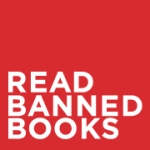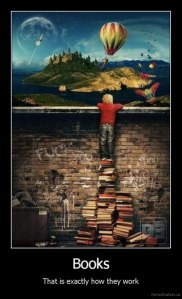Barbara Jones, the president of the ALA Office for Intellectual Freedom (OIF), has written an excellent piece over at the Huffington Post. Here’s a short excerpt, but I encourage you to read the whole article:
“I am deeply concerned about the current deluge of removals of classic books from the American literary canon. I thought that, as a society, we had reached a consensus that the literary canon should represent diverse segments of U.S. society. Multicultural literary works are not being included because of some need for “political correctness.” They are included because they are excellent and have been acknowledged as such by countless awards for literary merit. Though books that deal with controversial topics may make some readers uncomfortable, such literature offers a vehicle for true learning and understanding.”
(Emphasis added.)
 As Rebecca points out in another great article on the Robbins Library blog (“Freedom to Choose”), “There’s great value in discussion, and books are, by far, the safest route into many of these discussions.” With a few exceptions, the books that get people up in arms are novels, not nonfiction. This only proves that fiction is powerful; that it engages readers’ imagination and empathy, allowing them to experience a time, place, culture, or situation that they might not otherwise be exposed to – or, if they are exposed to it, they may be unprepared.
As Rebecca points out in another great article on the Robbins Library blog (“Freedom to Choose”), “There’s great value in discussion, and books are, by far, the safest route into many of these discussions.” With a few exceptions, the books that get people up in arms are novels, not nonfiction. This only proves that fiction is powerful; that it engages readers’ imagination and empathy, allowing them to experience a time, place, culture, or situation that they might not otherwise be exposed to – or, if they are exposed to it, they may be unprepared.
A little over a year ago, I wrote about the power and importance of fiction (“The Gleam in the Dark”), citing “Your Brain on Fiction” by Annie Murphy Paul from The New York Times and “Why Fiction is Good for You” by Jonathan Gottschall from the Boston Globe. Those pieces are worth a re-read now, during Banned Books Week, to remind us all about the value of stepping into someone else’s shoes, and the magical power fiction has to let us do that.


Thank you for this article and the links to others. I think I’ll get a banned book and read it this month. I just saw a young cousin reading “Catcher in the Rye” and it evoked such a powerful memory- I felt the way I felt when I first read that at her age. Only I was taken in by it, and she didn’t like it at all; she did not elaborate.
I didn’t love Catcher when I read it either, in high school. I’d heard so much about it by that point that it was underwhelming, and I was also annoyed at the way the author spelled “crumby.” But I adored The Perks of Being a Wallflower and that’s been banned too.
Students now more than ever need to be engaged in reading material that will evoke some sort of emotional response. Without that, they have little reason to engage with texts. The shift toward including more informational nonfiction while including less hard-hitting literature in classrooms is such a mistake. More and more, students only know how to scan text for the main points and correct answers. When asked what they think or feel about the theme of a story, it’s often crickets and blank stares…
[…] fiction and empathy, which has been studied and written about recently. (There are several links in this Banned Books Week post about censorship.) Gaiman explains just how prose fiction stretches the imagination in ways that film does […]
[…] “vehicle for true learning and understanding.” (For more on this topic, see “Censorship and Invisibility,” one of my Banned Book Week blog posts from last […]
[…] “vehicle for true learning and understanding.” (For more on this topic, see “Censorship and Invisibility,” one of my Banned Book Week blog posts from last […]
[…] different. The link between fiction and empathy is real (Scientific American, New York Times, this blog), and reading fiction, especially books where the narrators or main characters are very different […]